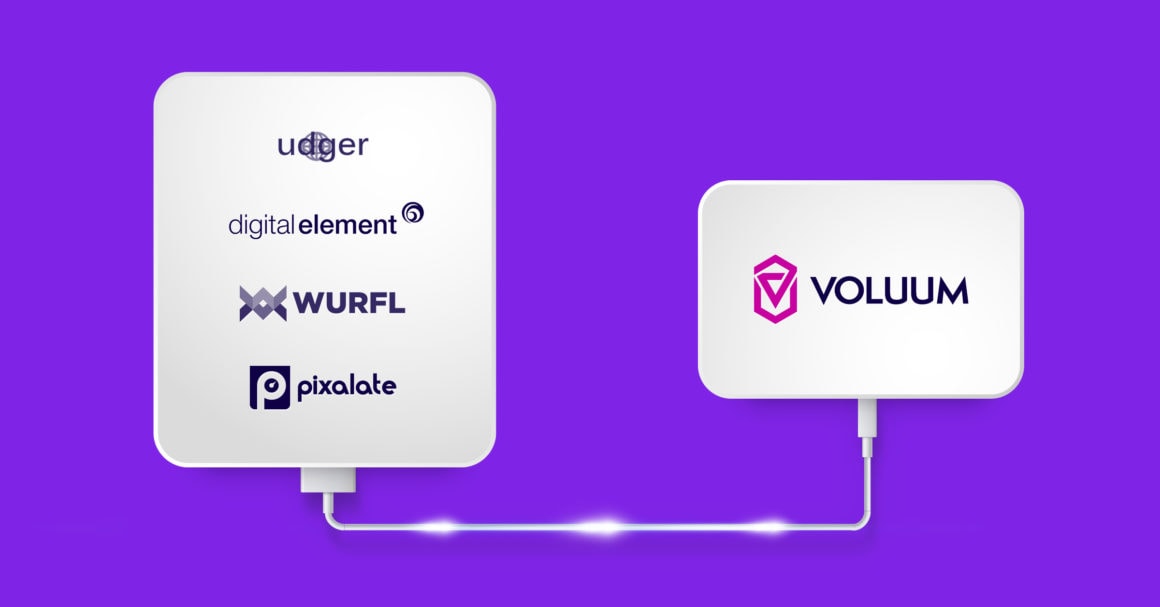To succeed in affiliate marketing, you need to know who is engaging with your ads. Where they are from, what device type they use to consume content.
It’s not only about providing the best experience for visitors, like displaying a landing page in a local language. It’s about laying the foundation for conversions. When you have a lot of information on your audience, you can:
- Adjust your targeting options in a traffic source. Stop buying traffic for that one device type that does not convert.
- Display different content for various segments of your audience. Android and iPhone users may respond to different things.
- Analyse your data on a much more detailed level and optimize without sacrificing too much traffic. Don’t cut off big placements just because they didn’t convert – cross-reference their numbers with browser types or device models and be more precise with your optimization efforts.
To get as much data on visitors as possible, Voluum uses external state-of-the-art services to get a wide range of information on your audience.
Voluum is far from being the only platform that uses external services to make their customers’ lives easier. The mighty Google does that as well. Same goes for Facebook. Generally speaking, everyone wants to focus on what they do best and get other services for additional value.
For example, Voluum is an awesome tracking solution, while Digital Element is a great geolocation service. Instead of trying to replicate their technology, it’s better to cooperate with them and keep developing other tracking features.
Digital Element isn’t the only external database that Voluum taps into, there are others. All that information allows our customers to really succeed, and you can read about this in our case study article.
To learn more about what those services are and what information they provide, keep reading.
Geolocation services – Digital Element

Whenever you see the ‘Country’ or ‘City’ column in Voluum, their content is provided not by Voluum itself, but by Digital Element.
It’s a geolocation service for businesses that uses IP addresses to locate users down to the ZIP code level.
It is used by the biggest names in the industry: Facebook, Microsoft, Apple, and many others. Name a big company and they probably have a Digital Element subscription.
The way it works is as follows: Digital Element has partnerships with most ISPs (Internet Service Providers) around the world plus from other partner websites that know which pool of IP addresses has been assigned to what location.
From the three ways of connecting to the Internet (wired desktop, WiFi desktop and mobile, mobile carrier), Digital Elements can provide location for the first two. They can localize mobile devices, as long as they are connected to WiFi networks, which represents 80% of mobile traffic.
Digital Element is the world’s most accurate location service that is trusted by the biggest brands and tech companies. It is only natural that Voluum uses this service as well.
Note that this is not the only way of getting your visitor location in Voluum. Most traffic sources get a visitor location on their own and – only if you configure the campaign URL correctly – can pass that information in the custom variable. You would see this information when displaying one of the custom variables in Voluum, usually marked as ‘Country’.
Information about location provided by Voluum thanks to Digital Element and the location sent by a traffic source may differ due to potentially different techniques used to get visitor location. In case of any discrepancy, I would recommend to trust Voluum data more, as it’s provided by the industry’s most renowned platform.
Device and browser type – Udger

Udger is another service that Voluum uses extensively. It provides the following types of information:
- Device type
- Operating system
- Browser type and version
Udger derives this information from visitors’ user agent string.
A user agent is software that acts on behalf of the user. In the case of surfing the net, it is most likely a web browser.
Udger decodes the user agent and sends data to Voluum. This enables advanced analysis and targeting.
Udger is used by companies such as SalesForce or PayPal.
Mobile OS – Wurfl

Wurfl is the embodiment of the evolution of the Internet. What started as a collaboration of a few developers that were trying to solve a real problem with wireless device identification became a commercial enterprise powering well-known brands like Google or Amazon Web Services.
Wurfls is the acronym of the Wireless Universal Resource FiLe. This file is a complete profile of a wireless (or, in today’s nomenclature, mobile) device specifications, such as mobile os and mobile os version.
Today, the database of over 80,000 device profiles can be accessed via API, which reads a mobile device’s user agent and matches it with a device profile.
Like with the services described above, Wurfl data enriches your reports with additional data points.
Fraud detection – Pixalate

Ad fraud is one of those ongoing problems that you can only mitigate, not combat completely. Voluum employed, among other solutions, Pixalate.
Pixalate’s overall goal is to reduce ad fraud. It connects with many stakeholders of the industry: SSPs, DSPs, ad networks, and analyses multiple data points to detect potentially fraudulent activity. It ensures real-time fraud detection before bidding for your Internet ads.
The Best Databases in One Place
By tapping into these many external data sources, Voluum provides you with an outstanding service that it otherwise would not be able to provide. You don’t have to do anything; you don’t have to set up anything or upgrade to one of the higher pricing plans. You already have everything these services have to offer inside all Voluum subscriptions, enriching all tracking data with various characteristics.
How would Voluum do without all these additional services? It would still be an awesome tracker – but limited in some ways, just like our competitors.





